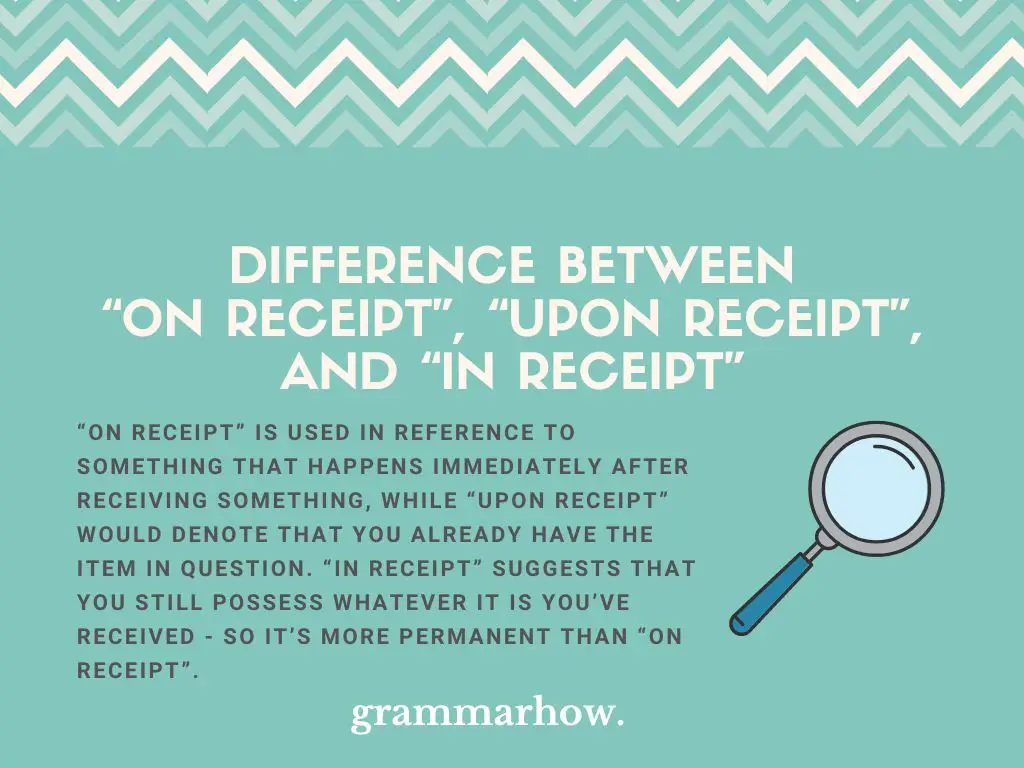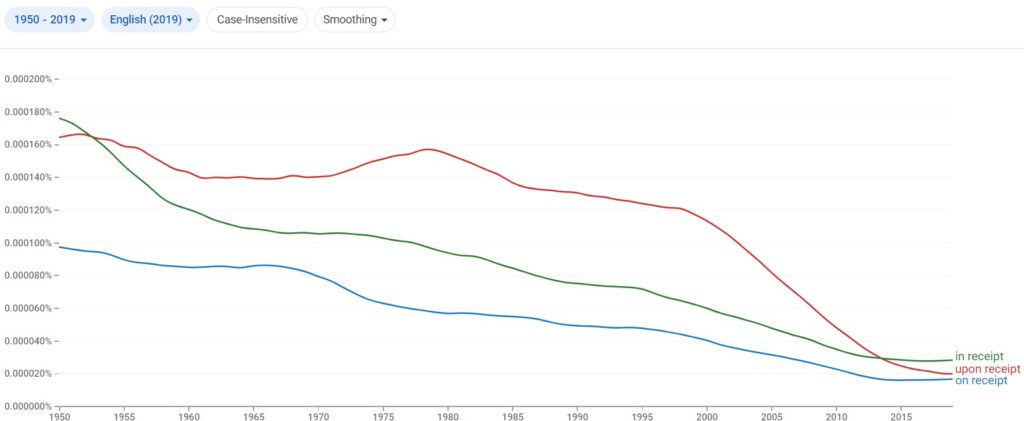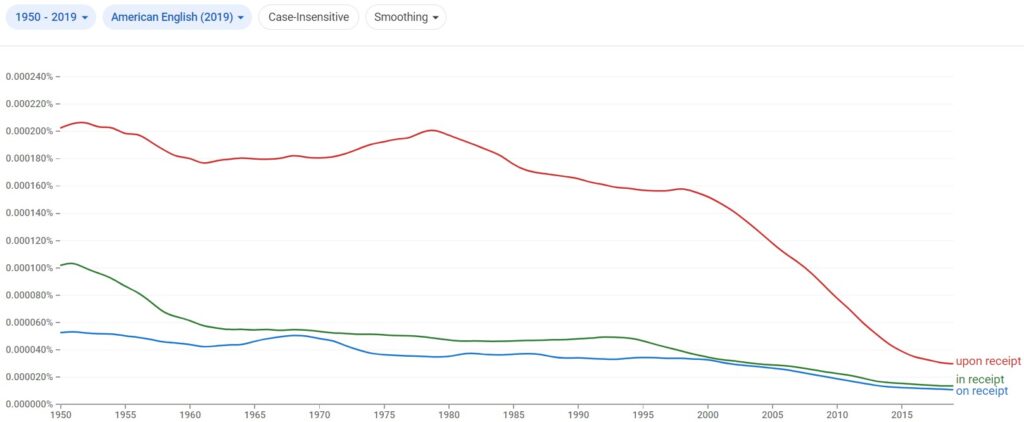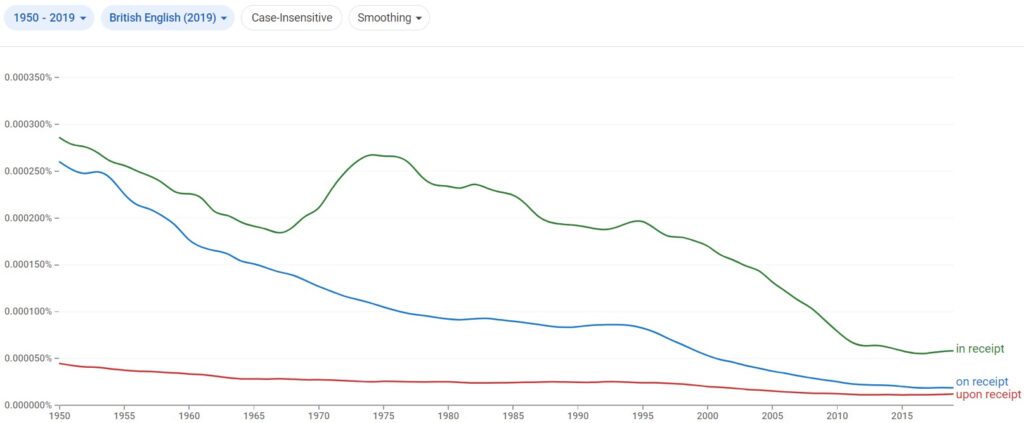When it comes to the word “receipt”, there are a few different options: “on receipt”, “upon receipt”, and “in receipt”. But what’s the difference? Which one should you use? This article will discuss the differences between these three phrases and help you decide which one is best for your situation.
What Is The Difference Between “On Receipt”, “Upon Receipt”, And “In Receipt”?
“On receipt” is used in reference to something that happens immediately after receiving something, while “upon receipt” would denote that you already have the item in question. “In receipt” suggests that you still possess whatever it is you’ve received – so it’s more permanent than “on receipt”.

Let’s take a closer look at the meaning of each one:
On Receipt: This phrase simply means that something should be done or carried out as soon as it is received.
Upon Receipt: This phrase has a similar meaning to “on receipt”, but it stresses the idea of taking action promptly after receiving something.
In Receipt: This phrase indicates that the speaker has already received something.
As you can see, though these phrases may appear to be similar at first glance, they have different implications.
Here are a few examples to illustrate the differences:
- On receipt of this email, please forward it to the appropriate department.
- Upon receipt of the package, open it carefully so as not to damage the contents.
- I am in receipt of your letter and will respond shortly.
What Does “On Receipt” Mean?
“On receipt” is a business term that means the recipient should take action immediately after receiving an item or document. It is commonly used in shipping and handling documents. Another common use of “on receipt” is found in businesses when authorizing customer return requests.
For example, if you order something online and the company says your package will be delivered “on receipt,” it means the moment they hand it over to the shipping carrier, it’s up for delivery to you.
Many businesses put a time limit on how long a customer has to return an item, and this window typically starts “on receipt.” This lets the customer know that once they receive their purchase, they have X number of days to decide whether or not they want to keep it.
Explore these examples that best illustrate the usage of “on receipt”.
- On receipt of your order, we will ship the items within 2-3 days.
- Please sign and return this contract on receipt.
- On receipt of the damaged goods, we will send you a replacement.
- We will issue a refund on receipt of the returned items.
- On receipt of this email, please confirm your attendance at the meeting.
In each of these examples, the recipient is expected to take some sort of action.
What Does “Upon Receipt” Mean?
“Upon Receipt” means “immediately.” When something is labeled “upon receipt,” it means that the store wants you to take it out of the packaging and start using it as soon as possible. Probably because the item has a short shelf life or the store wants to get rid of it.
You might see this phrase on food items, cosmetics, or other perishable items. For example, a package of sushi might say “consume upon receipt.” This means that you should eat the sushi as soon as possible after receiving it.
Here are some further examples to help you understand how to use the phrase “on receipt.”
- Upon receipt of this email, please review the attached document.
- Upon receipt of your order, we will begin processing it.
- Upon receipt of the product, we will inspect it for damages.
- Upon receipt of payment, we will ship your order.
- Upon receipt of these records, please contact us.
- Upon receipt of the information, we will take appropriate action.
- We will take appropriate action upon receipt of this information.
What Does “In Receipt” Mean?
“In receipt” is used to describe the act of receiving something. It is often used in business dealings to confirm that an item has been received or that payment has been made. It can also mean “(in) possession of,” as in “I am in receipt of your letter.”
For example, if you were to send a check to your landlord, you might say, “I am in receipt of your check.” This would let them know that they have received the payment and can expect it to clear soon.
Similarly, if you were to order a new phone online, the company might send you an email saying, “We are in receipt of your order.” This means that they have received your order and are processing it.
These are but a few of the many ways to use this phrase:
- I am in receipt of your letter.
- We are in receipt of your payment.
- The company is in receipt of your order.
- I am in receipt of your email.
- We are in receipt of your application.
- The school is in receipt of your transcripts.
- The government is in receipt of your tax return.
Are “On Receipt”, “Upon Receipt”, And “In Receipt” Interchangeable?
No, they are not. They all have different meanings and usage. “On receipt” means that the action will be taken when the item is received. “Upon receipt” means the action will be taken as soon as the item is received. “In receipt” means that the item has already been received.
Take a look at the examples to see how each term differs in meaning:
- “On receipt of your payment”, we will ship your order within 3-5 business days.
- Please sign and return the form “upon receipt”.
- We are “in receipt” of your documents and will process the visa immediately.
Is “On Receipt”, “Upon Receipt”, Or “In Receipt” Used The Most?
The phrase “in receipt” has been used far more frequently, as shown in this Google Ngram Viewer graph. The red line shows the usage of “on receipt,” while the green line depicts “upon receipt,” and the blue line shows “on receipt”.

Are “On Receipt”, “Upon Receipt”, And “In Receipt” Used Differently In The UK And The US?
According to this Google Ngram Viewer, “upon receipt” is widely used in the United States, while “on receipt” is used the least.

And this Google Ngram Viewer reveals that “in receipt” is the most frequently used in the UK while “upon receipt” is the least used.

You may also like: “Upon Receiving” vs. “When Receiving” – Difference Explained

Martin holds a Master’s degree in Finance and International Business. He has six years of experience in professional communication with clients, executives, and colleagues. Furthermore, he has teaching experience from Aarhus University. Martin has been featured as an expert in communication and teaching on Forbes and Shopify. Read more about Martin here.
